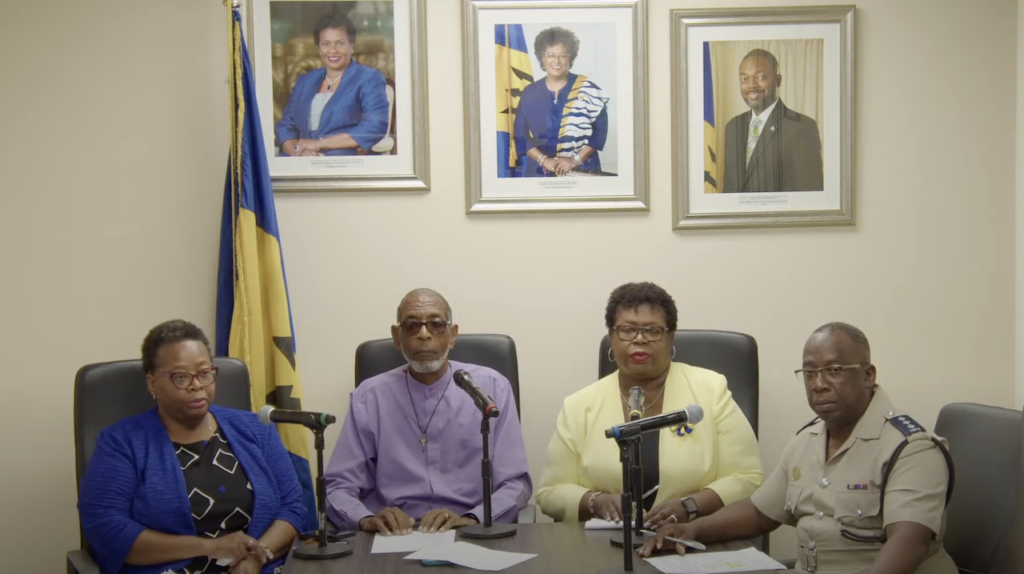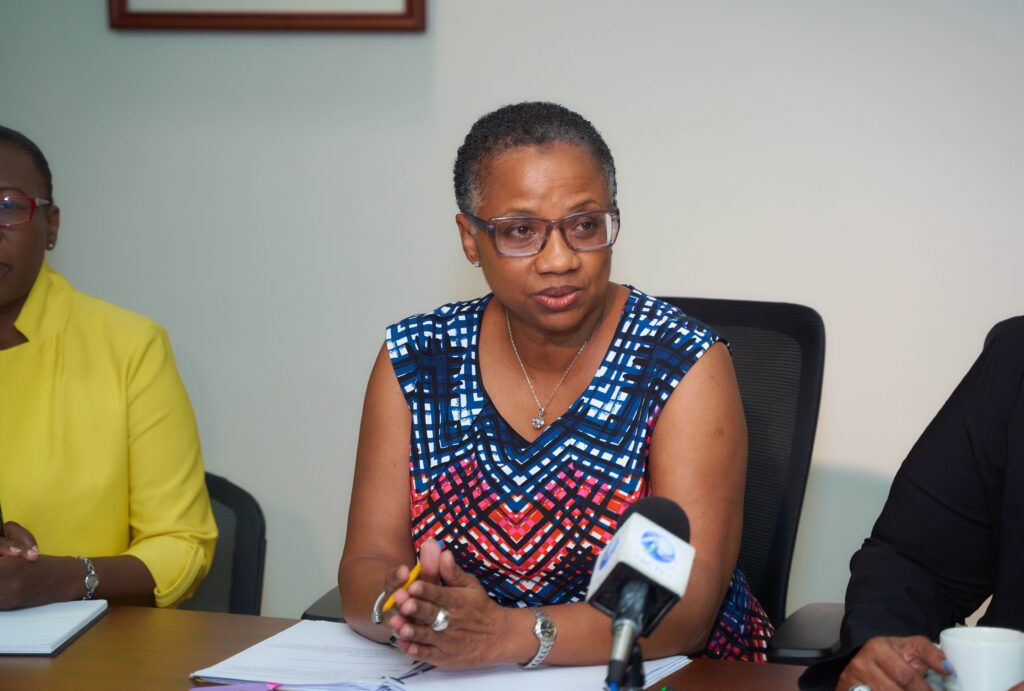I saw a story from a media house on social media headlined: “BCCI: Social Compact won’t be reintroduced.” There was no need to fully read or listen to the head of the BCCI, James Clarke, since the headline said it all. That story made me think about a previous article just days earlier from Barbados TODAY headlined: Do Christmas buying early as prices set to rise, warn business leaders.
The private sector has now absolved itself of any responsibility in shielding consumers from rising prices. It seems we are no longer “in this together,” as trusting Bajans are now being told to brace for more price hikes. To be fair, I think that was expected.
Will the government respond to this emphatic and final rejection of the Social Compact? If they do, what will their response be? Will consumers be better off after the talk?
It is clear that the government can no longer hide behind the private sector on the issue of the cost of living. The BLP administration must take the lead in easing the burden imposed by rising living costs on behalf of the citizens. To do this, and to address runaway inflation, the government must also consider its actions, which have undoubtedly contributed to the economic strain on households.
When it came to office, the government removed the National Social Responsibility Levy (NSRL). One can debate how well-intentioned that was, but the fact is, the tax was applied to goods at the port and raised approximately $152 million in 2017 alone.
On June 11, 2018, the newly elected prime minister said: “My government expects that the removal of this distortionary levy will lead, within two months after our consultations with the private sector, to a reduction in prices for the average Barbadian. The Social Partnership has agreed to help us monitor this situation. It is within two months because we already have stock on the island that would have paid NSRL prior to this announcement today.”
Six years later, consumers are still waiting for that promised reduction. While we wait with bated breath, it is clear that the government has put very little in place to monitor and report to Barbadians on the promised reductions. How many “two-month” periods have passed since this promise was made? To add insult to injury, the prime minister said that the private sector was expected to monitor itself. How disheartening! What a shame!
Upon the repeal of the tax, consumers were expecting a reduction in prices on the shelves. However, they did not see reductions. Nothing was felt at the time of removal in 2018, and of course, it is worse now, six years later. The government’s monitoring process failed miserably, and the almost one billion dollars in lost revenue has to be recouped from citizens through increased taxation and loans.
The government has been relegated to making bland and empty statements on the cost of living crisis, rather than taking immediate and firm action to stamp out price gouging and put initiatives and policies in place to shield consumers from further inflationary pressures. With its inaction, the Barbados Labour Party administration is keeping prices at unrealistic levels.
The International Monetary Fund is on record requesting the removal of the 2 per cent foreign exchange (FX) fee, which was inherited by the current administration. The government earns a 2 per cent FX fee on purchases made by businesses or individuals in a currency other than Barbadian dollars.
What that means is that on 100 per cent of imported goods, Barbadians are paying 19.5 per cent tax in addition to duties and levies—17.5 per cent for value-added tax (VAT) and 2 per cent for the FX fee. The government also introduced VAT on purchases made by locals over the Internet but from retailers outside of Barbados.
Even the average working-class person, who may make online purchases of school supplies, food supplies, or any items to put in a barrel from overseas, does not escape the wrath of this government through its excessive taxation policy.
Even those hard-working citizens who make personal sacrifices to afford their families a vacation overseas are burdened with the FX fee each time a purchase is made with a Visa debit or credit card, even when they are outside Barbados.
The price of petrol and diesel at the pump remains exorbitant, with no change for more than a year. It is now 375 days and counting that consumers have paid a consistent $4.22 per litre for petrol and $3.47 per litre for diesel. These prices are among the highest Barbadians have ever been forced to pay at the pump. In a previous article, I showed that the government is being disingenuous by not adjusting the prices down when the purchase price was reduced.
The Garbage and Sewage Contribution (GSC), introduced by this government, in many instances, exceeds the cost of water usage for many households. A disturbing phenomenon. This has extracted close to $500 million since its introduction. Most of this collection is from the working class of this country. But what makes matters worse is that Barbadians have nothing to show for this financial sacrifice. Do we have a sewage system to show? How many garbage trucks are operational? Are we treating our sanitation workers properly? Have we significantly addressed the water woes in many districts?
Under this government, fares on public transport moved overnight from $2.00 to $3.50, yet transport is in shambles, affecting the more vulnerable in our society who have no choice but to use it. The government also imposed a fuel tax on drivers, which has raked in approximately $475 million since 2018. Despite such massive tax collections, taxpayers still have to repay loans in excess of $30 million for an accelerated Mill and Pave Programme to deal with a T20 Cricket World Cup that did not live up to expectations, while major roads in many communities remain in a horrible state.
Workers are taking home less money in their pay packets as this government introduced the Health Service Contribution. $400 million later, there is no meaningful improvement at our main hospital or in the general healthcare system in Barbados. The Health Service Contribution goes directly to the Queen Elizabeth Hospital. Maybe one of the ministers of health can explain how the money has been spent.
Unfortunately, even amidst the half a billion dollars collected, the government is on the verge of asking taxpayers to repay yet another loan to fund major equipment purchases and repairs to the Queen Elizabeth Hospital.
Locals did not dodge the impact of the 2.5 per cent Product Development Levy on Direct Tourism Services. These direct tourism services, which include restaurants and tourist attractions, rely heavily on locals during the tourist season (December to April) and also in the off-season months. So again, the spending power of our citizens continues to dwindle due to the imposition of yet another tax, which adds to the already established VAT.
The government cannot absent itself from its social responsibility to protect citizens. The above are just some of the actions taken by the current administration, which have exacerbated the cost of living crisis that every single Barbadian is grappling with. The disposable incomes of our citizens are being eroded every day. The cost of living continues to rise. The Social Compact is no more. We are heavily taxed, with no ease or solution forthcoming. It is now up to the government, with the most resounding mandate in the history of Barbadian politics, assisted by a cadre of consultants, to ease this cost of living burden.
Opposition Senator Ryan Walters is the Democratic Labour Party’s spokesman on Energy, Small Business and Entrepreneurship, and Housing.
The post Private sector out; Govt must step in to ease cost of living appeared first on Barbados Today.


